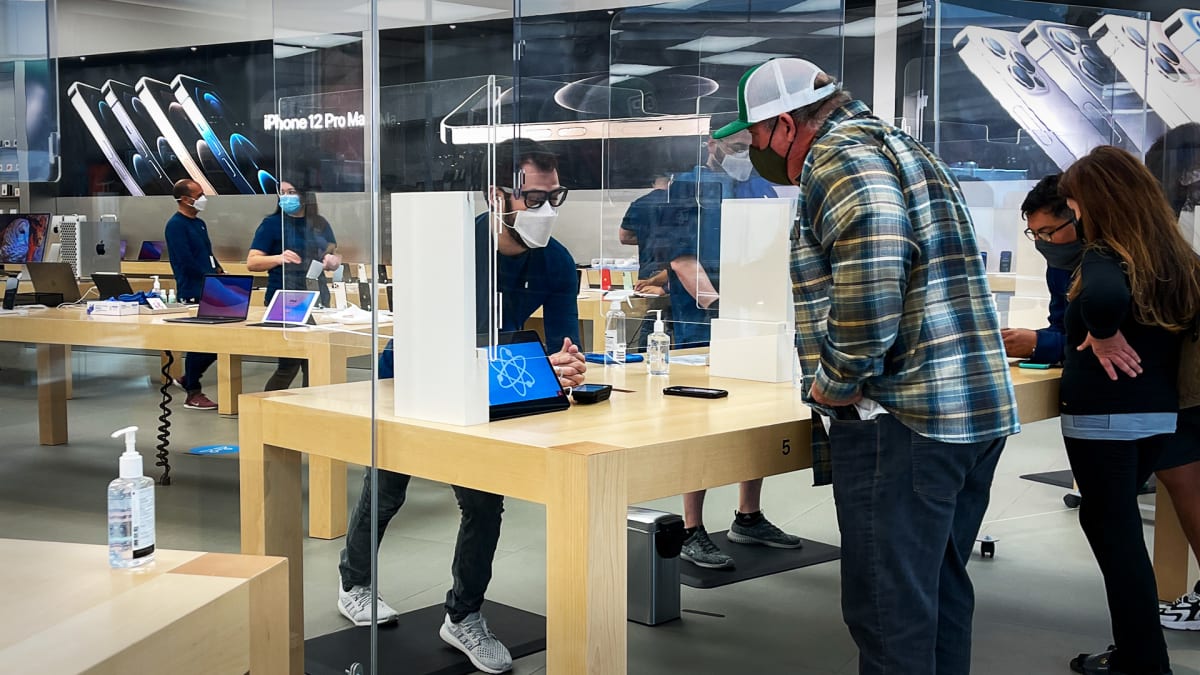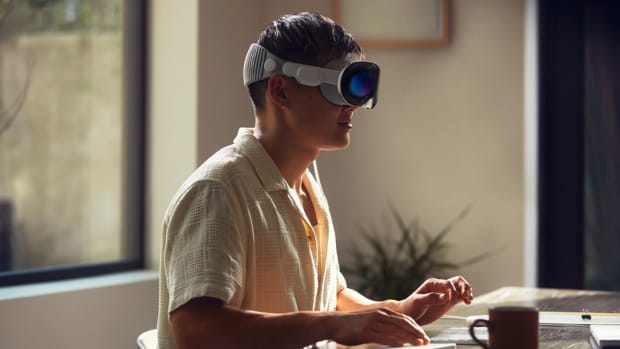
Apple Inc. (AAPL) founder Steve Jobs may no longer be with us but the company’s new products events, which he pioneered into must-see viewing, remain as potent as ever.
Take Apple’s unveiling this week of its Vision Pro virtual reality headset, its first new hardware since the Apple Watch in 2015. Given the frenzy over the device — including whether consumers will actually pay $3,500 for it –– one might have assumed that company created an actual car. (Actually, that’s still a possibility.)
One group in particular was watching with nervous anticipation: retailers like Target (TGT), Walmart (WMT), and especially Best Buy (BBY). And for this simple reason: they really, really need Apple to produce not just a hit but a genuine, honest-to-God blockbuster.
That’s because sales of electronics, especially in computing and gaming, have really stunk in recent years for a couple of reasons.
Inflation, lack of excitement hurt sales
One is inflation: wary of rising prices, consumers have been cutting back on things they don’t need on a daily basis, items like clothing, home goods, and, yes, electronics. According to the U.S. Commerce Department, adjusted sales from electronics and appliance stores in April fell 7.3 percent from the same period in 2022.
But the data doesn’t tell the entire story. Analysts and retail executives have noted that consumers are still willing to spend money on premium merchandise that excites them, inflation be damned.
Which brings us to the second reason electronics sales have stunk: tech manufacturers haven’t produced anything of late that consumers feel they just gotta have.

No one has felt this hole more than Best Buy. As the world’s largest consumer electronics retailer, Best Buy essentially acts as the bellwether for broader sales of computers, mobile devices, and video game consoles.
Just look at its largest list of suppliers. Apple, Samsung, HP, LG and Sony accounted for 57% of the total merchandise the retailer bought last year, SEC documents show.
The results have been brutal. Best Buy said first-quarter domestic comparable sales fell 10.1% and that’s on top of a 8.5% drop in the same period a year ago. For the year, the company expects overall comp sales to decline as much as 6%.
“In this environment, customers are clearly feeling cautious and making tradeoff decisions as they continue to deal with high inflation and low consumer confidence,” CEO Corie Barry said in a statement.
But the electronics slump has dragged down sales everywhere. Walmart and Target both reported weak sales in the category, which have impacted their overall growth.
Target in particular has a lot a riding on Apple. Since opening its first Apple store-in-within-a-store concept in 2021, the retailer has more than tripled the number of stores that carry the special shops to over 150 locations across the country. Target has also offered its members of its Target Circle loyalty program exclusive deals and benefits with Apple.
Both Walmart and Target are now relying on more resilient categories like food, household essentials, and beauty to offset electronics.
Yet nothing can really replace electronics. We live in a tech-dominated world: computers and mobile devices not only generate higher profit margins but new products create the kind of excitement that prompts consumers to visit stores and buy other things.
Can Apple spark a turnaround?
Barry told analysts in a conference call that the industry was due for a turnaround because of compelling innovation she expects to see from her suppliers.
“Billions of dollars of R&D spend by some of the world's largest companies and likely some we haven't even heard of yet, means innovation is constant over the long term, driving interest, upgrades, and experiments,” Barry told analysts.
“We continue to believe the industry will get back to a more normalized pace of meaningful innovation toward the end of calendar 2023 and into 2024,” she said.
Whether that’s Apple’s Vision Pro remains to be seen. Asking consumers to pay $3,500 is a lot to ask. But the device might ignite a new category of sales and excitement that stretches over the next several years.
In the meantime, retailers are counting on Apple to release the new iPhone 15 in the fall. Even extreme value retailer Five Below Inc. (FIVE) hopes for a lift.
“We've got an even bigger reset coming early this fall,” CEO Joel Anderson told analysts. “I think there's a lot of rumors out of some changes happening with the Apple release that will be positive for us.”







